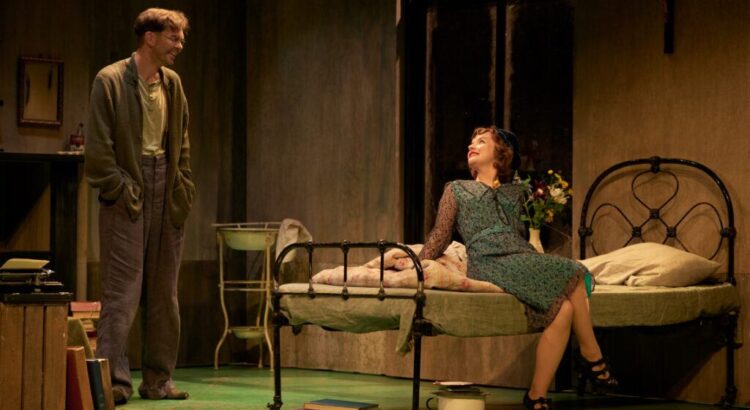4:00pm • Saturday, Oct. 21, 2023 • Power Center
The Druid Theatre Company’s production of The Shadow of a Gunman, from Sean O’Casey’s Dublin Trilogy, explored themes of cowardice and courage, and of action and inaction. The story takes place in a tenement during the Irish War of Independence, following Donal Davoren, a poet, and Seamus Shields, a traveling salesman. The tenement’s residents believe Davoren is an IRA gunman on the run, a tale which he does not refute because of the aura of mystery and importance it grants him. The plot reaches a climax near the end of the play, when the tenement is raided by Black and Tans (a violent British police force), eventually revealing which characters are the true cowards.
I appreciate the way O’Casey uses pointed moments of comedy in this play to make a statement about individuals’ feigned and real courage. Davoren and Shields both make a show of their ideological commitments and their willingness to act, but when their lives or values are actually threatened, they collapse into trembling heaps. Davoren gives a great monologue about the moral superiority of “the poet,” and that archetype’s commitment to higher philosophical strivings than the majority of laborers, but we see throughout the play that Davoren has little real commitment to anything.
My favorite character in the play is Minnie Powell, one of the tenement’s residents and Davoren’s love interest. For most of the play, Minnie is treated almost as a prop. She is the object of Davoren’s interests, and her name is used as an invocation by the other residents, warning Davoren against “degrading” attachments. However, at the end of the play, Minnie is the one who assumes the responsibility of hiding incriminating evidence from the Black and Tans, believing it belongs to Davoren. Minnie is the one who is dragged down the stairs shouting “Up the Republic,” while Davoren and Shields cower in their room hoping she doesn’t reveal their involvement. Minnie’s death brings Davoren and Shields’ puff-chested braggadocio into tragic relief, completing O’Casey’s statement about the value of action over words.
I think there is another interesting conversation to be had about whether O’Casey himself lives up to this statement in his legacy as a poet and playwright. I don’t necessarily have the background knowledge to answer that question, but I am fascinated by the dialogue between O’Casey’s works and his stated beliefs about the role of artists in conveying messages about society, politics, and human nature. O’Casey’s work focuses on the common people of Ireland, rather than the heroes and martyrs of the nation’s conflicts. Is there a sense of elitism inherent in using one’s position as an artist to criticize the common people for their lack of heroism? I’m not sure.


